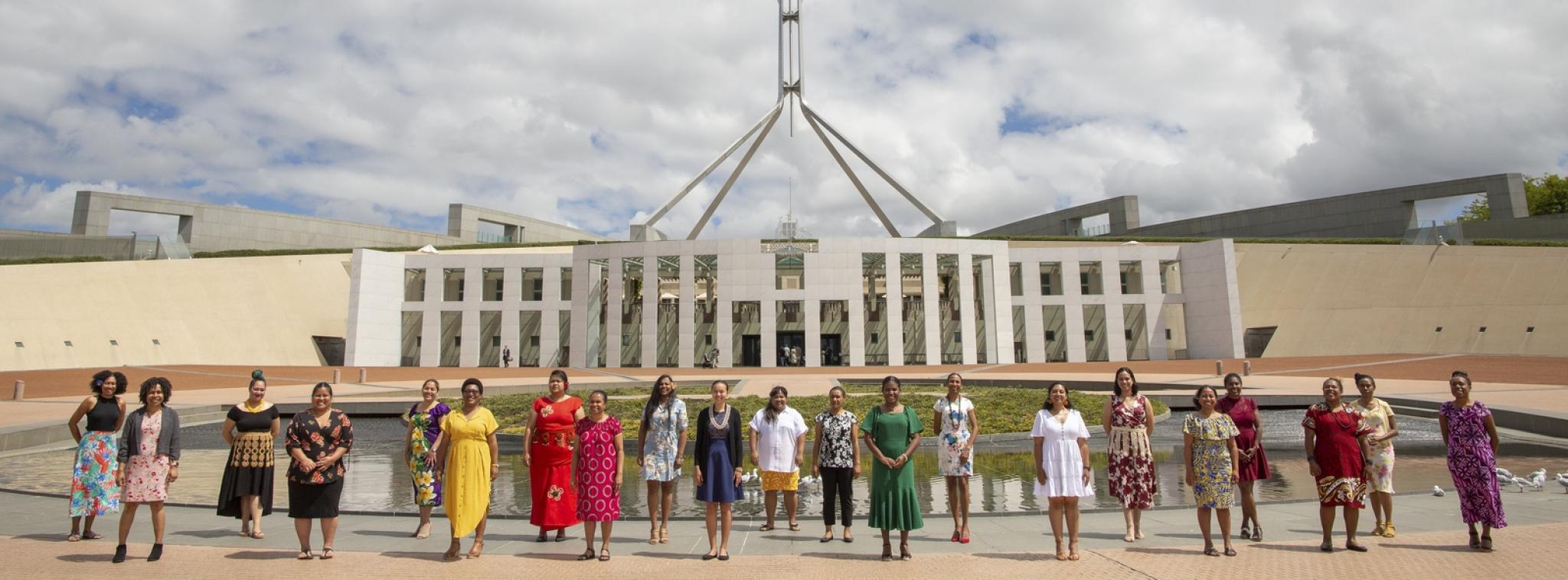Between 2017 and 2021, the Department of Pacific Affairs (DPA) partnered with the Women’s Leadership Initiative (WLI), a leadership program for Pacific women awarded Australian government-funded scholarships to study in Australian tertiary institutions.
The initiative supported participants – selected among Australia Awards scholars and alumni from the Pacific Islands region – to fulfil their leadership potential and ‘drive big ideas and reforms in their communities’. By the end of an intensive leadership program, it is envisaged that female and male Australia Awards alumni are actively engaged in networks and coalitions that seek to achieve change in their own countries; female Australia Awards alumnae are strengthening cooperation between Pacific countries and Australia; and Australia Awards alumnae use their leadership skills to contribute to sustainable development outcomes for the Pacific.
In working towards these objectives, participants: completed two week-long leadership intensives involving a range of outdoor, classroom and other learning experiences; were mentored by an Australian woman leader who is matched to their academic, professional and leadership interests and ambitions; had access to one-on-one leadership coaching, academics and subject matter experts to help build their knowledge, apply their learning and improve their leadership practice; developed a range of skills, networks and competencies that will make each woman an effective, ethical leader of developmental change; are invited to share experiences with other scholars and leaders at a range of learning and networking events and activities; and were eligible to apply for a workplace internship (if they have successfully graduated from the Leadership and Mentoring program).
DPA’s role in the program was to provide a robust evidence base alongside its programmed activities (see publications).
In 2020 and 2021, DPA collaborated with colleagues at the University of Papua New Guinea (UPNG) to design and execute a research project to consider the leadership legitimacy of WLI participants on return home. Based on qualitative interviews with 14 women who had returned to PNG following their participation in the WLI program, the research challenged some of the program’s core assumptions: first, that connections made by WLI alumnae with women across the Pacific support their leadership opportunities on return home; second, that the ideas and skills learned overseas (in this case, in Australia) can be integrated in to the workplace and community on return home; and third, that building women’s leadership ‘competence’ will contribute to their ability to drive development reforms on return home.

